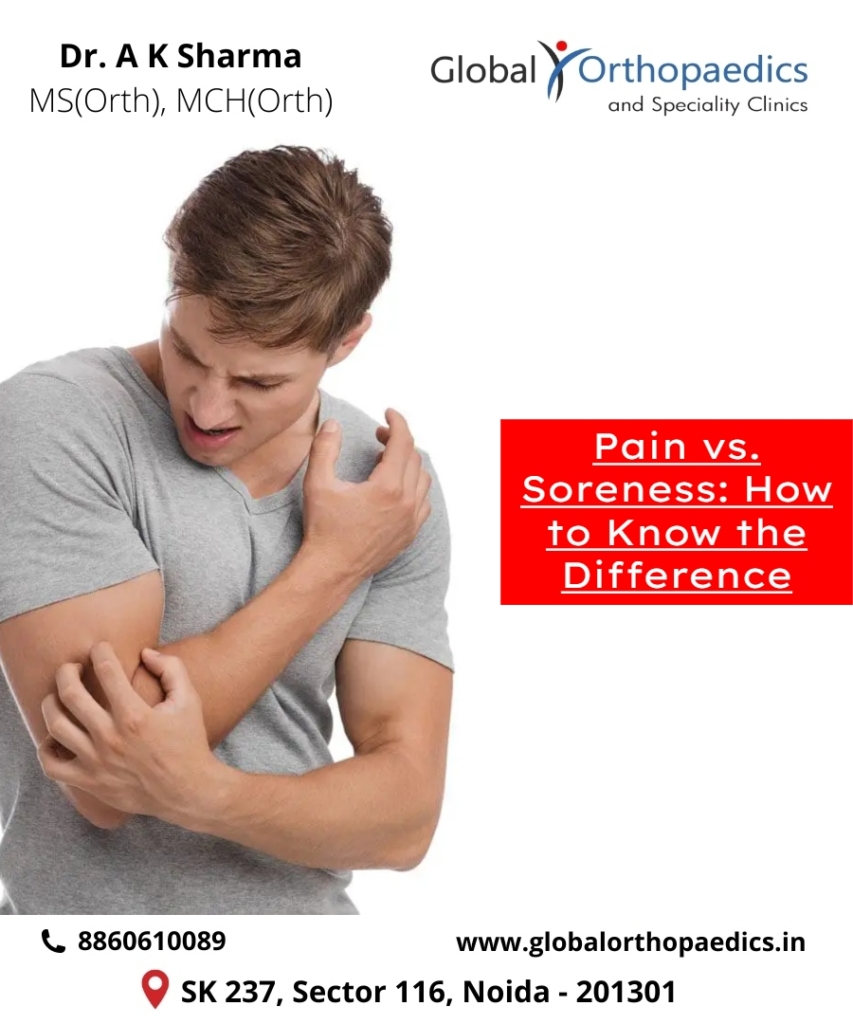When engaging in physical activity, it’s common to experience some discomfort or soreness. However, it’s crucial to differentiate between normal soreness and pain that may signal an underlying injury. Understanding the difference can help you make informed decisions about your training and recovery.

Soreness vs. Pain
- Soreness: Typically a mild, aching sensation that occurs after intense exercise or a new activity. It usually subsides within a few days.
- Pain: A more severe discomfort that can be sharp, throbbing, or persistent. It may be accompanied by swelling, redness, or limited range of motion.
Common Causes of Pain in Athletes
- Overuse Injuries: Repetitive motions can lead to inflammation and pain in muscles, tendons, or joints.
- Acute Injuries: Sudden traumas like falls or collisions can cause sprains, strains, or fractures.
- Referred Pain: Pain felt in one area of the body but originating from another.
Tips for Managing Pain and Soreness
- Rest: Allow your body time to recover from intense workouts.
- Ice: Applying ice to the affected area can help reduce inflammation and pain.
- Compression: Using a compression bandage can support the injured area and reduce swelling.
- Elevation: Elevating the injured area above your heart can help decrease swelling.
- Over-the-Counter Pain Relief: Medications like ibuprofen or acetaminophen can provide temporary relief from pain and inflammation.
- Physical Therapy: A physical therapist can help develop a rehabilitation plan to strengthen muscles and improve flexibility.
Preventing Injuries
- Proper Warm-up: Prepare your body for physical activity with a thorough warm-up.
- Gradual Progression: Gradually increase the intensity and duration of your workouts to avoid overuse injuries.
- Proper Technique: Ensure you’re using correct form to minimize the risk of injuries.
- Listen to Your Body: Pay attention to your body’s signals and take breaks when needed.
When to Seek Medical Attention
If you experience persistent pain, swelling, or other concerning symptoms, it’s essential to consult a best sports injury doctor in Noida or a specialized sports injury clinic in Delhi NCR. Early diagnosis and treatment can prevent further complications.


